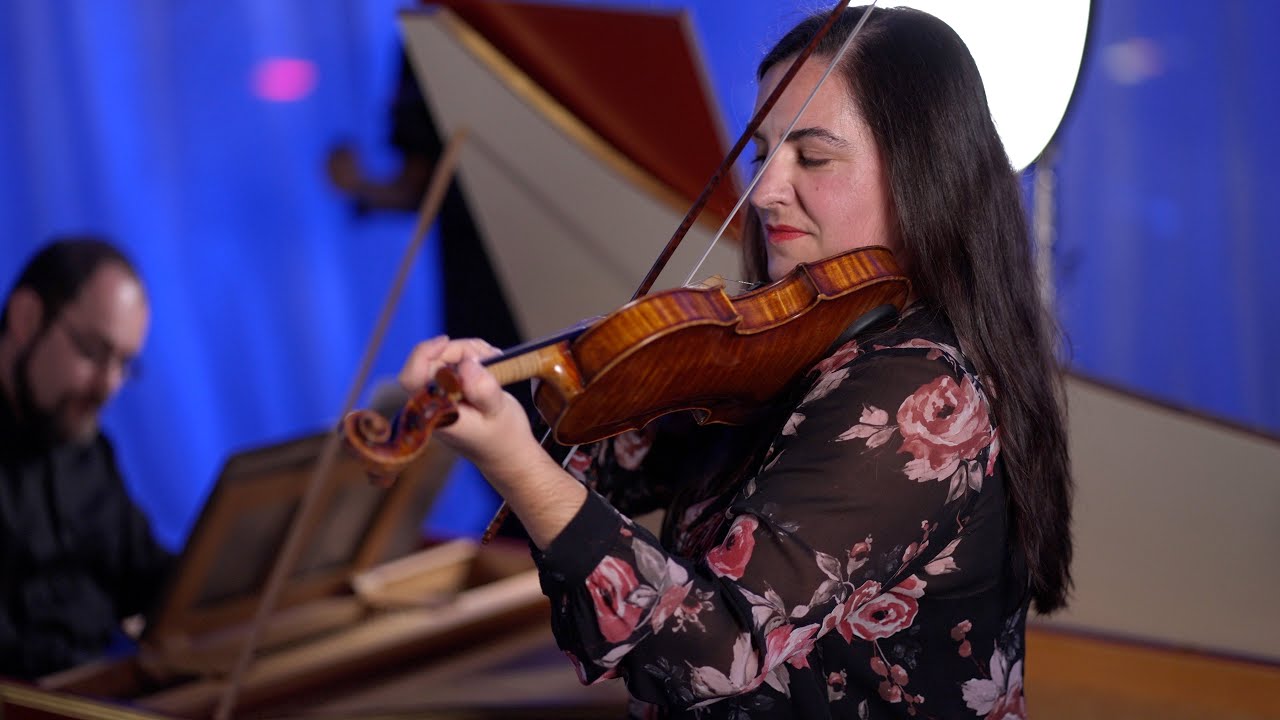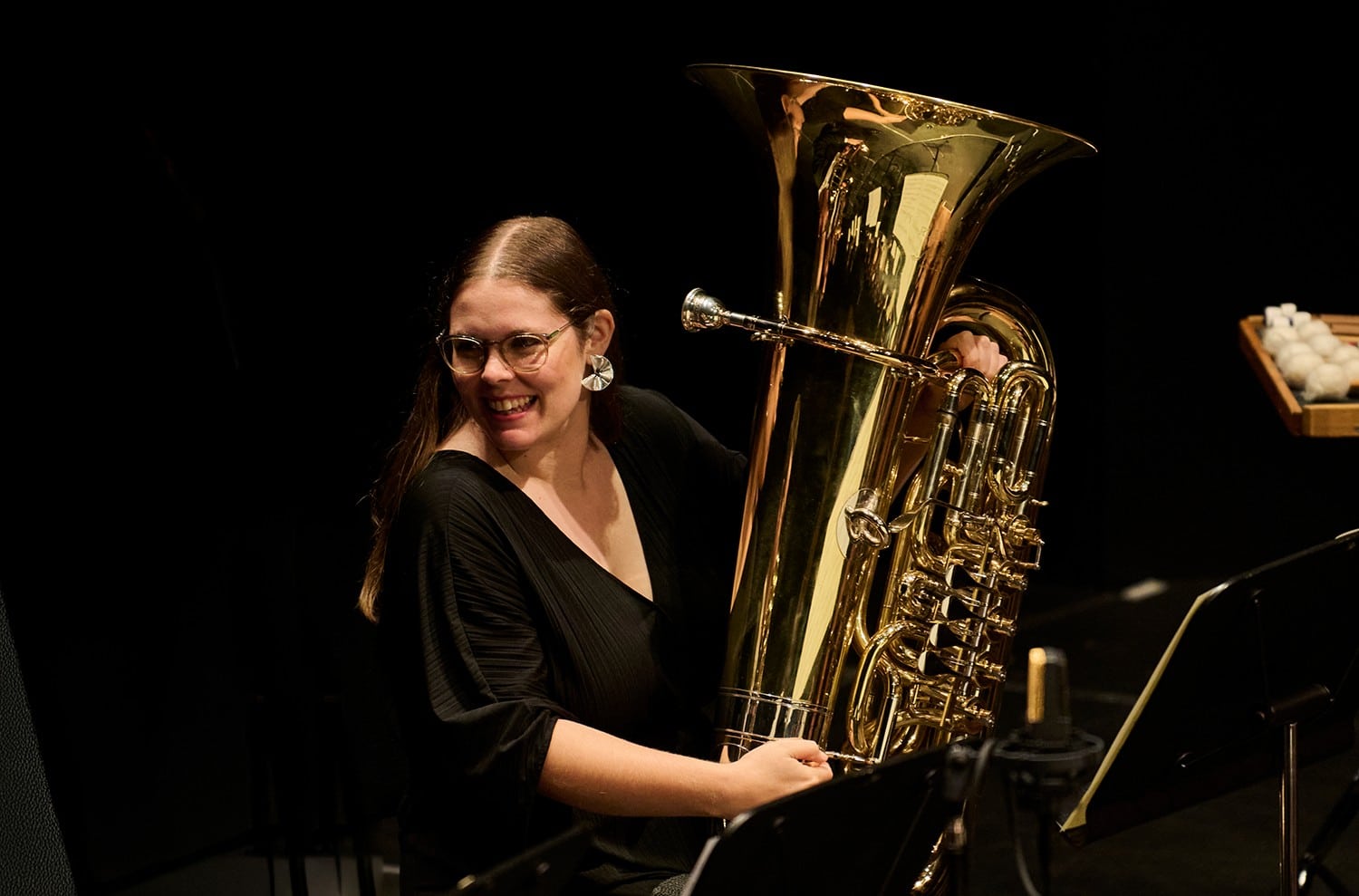$1.8 million plan to ‘increase diversity in US orchestras’
main‘Holistic and personalised support?’ Could be too little, too late.
Here’s the press release:

NEW YORK (April 18, 2018) — Three national organizations – The Sphinx Organization, New World Symphony, and the League of American Orchestras – have partnered to create the National Alliance for Audition Support (NAAS), a field-wide initiative with the long-term goal of increasing diversity in American orchestras.
Supported by a four-year, $1.8 million grant from The Andrew W. Mellon Foundation, along with additional financial and programmatic contributions from America’s orchestras, the Alliance will offer a holistic and personalized array of support to Black and Latinx musicians to develop their audition skills, increase their participation in auditions, and ultimately, increase their representation in orchestras.
“This is a critical time for all of us to act with renewed commitment and drive to help our orchestras to be more reflective of their communities and to represent perspectives and talents from Black and Latinx musicians,” said Sphinx President and Artistic Director Afa S. Dworkin. “We are honored to join forces with key industry leaders, humbled to receive and incorporate extensive insight directly from artists, and incredibly grateful to The Andrew W. Mellon Foundation for prioritizing this vital work.”
“New World Symphony envisions a strong and secure future for classical music,” said NWS President Howard Herring. “We believe that is possible only if the orchestras of this country are representative of their communities. New World is committed to diversifying its Fellowship with the support of our alumni, who have won positions in orchestras and ensembles around the world. We are honored now to partner with Sphinx and the League in forming this new Alliance dedicated to making equity and inclusion part of the future for American orchestras.”
“This unprecedented collective action on the part of America’s orchestras addresses some of the main barriers to advancing diversity, equity, and inclusion in orchestras,” said Jesse Rosen, President and CEO, League of American Orchestras. “The unique and coordinated network of support is informed by research and extensive discussions with many Black and Latinx musicians as well as many other individuals in orchestras and higher education. We are especially grateful to the American Federation of Musicians, the International Conference of Symphony and Opera Musicians, and the Regional Orchestra Players Association for their participation and support.”





Most U.S. orchestras I have seen seem to have a greater share of musicians that are visible minorities (mostly east Asian) than the general population (of course I might be wrong). Diversity also encompasses culture, not just visible ethnicity.
Acknowledge at least that professional orchestras aren’t the only form of classical music in existence. There are some people who are trying to make a salary off of classical music – and of course they are afraid of losing their jobs. That has little to do with the survival of community orchestras, bands, choruses, amateur pianists, etc. who will still be keeping classical music alive beyond anyone’s control.
“Latinx”: God, you can tell the mentality that is ruling these tribes. They probably refer to people as “cis” and all those other variants as well. Very “woke” people. And oh how tiresome.
I think seminars or coaching or whatever they are doing in audition technique is something a lot of musicians could benefit from. Why restrict it? But if it is audition techniques that are making Black and “Latinx” musicians stumble at the first fence, by all means start with them and emphasise their opportunities. There are tricks to these things, like Oxbridge interviews, and they are not something you necessarily acquire with sight-reading skills,
I was a child when “Ms.” started to become a thing. The objections at the time were similar.
But the rationales are not. “Ms.” essentially said it is nobody’s business what a woman’s marital status was, as they did not get to know a man’s by his title. “Latinx” is politically motivated to be “gender”-neutral — Latinity is usually visible and often audible. If the PC brigade are afraid of “offending”people, they could use the word Hispanic instead of Latino/a.
Anyway, I doubt the vast majority of sane people give a damn if the word “Latino” is used for both sexes, the way “he” used to be considered all-inclusive. Way too much effort expended on thinking up ways people could be offended and forming unnecessary solutions to non-existent problems.
With all due respect, they get to decide what to call themselves. And everyone else gets to decide whether to go along with it. As lots of people of color know, nothing can stop other people from calling you whatever they want.
And we certainly want to put a stop to that!!! Call out the troops if it happens again.
Whats with the PC bullshit of “people of colour”, the last time I looked around we were all people of colour, we just happen to be DIFFERENT colours. But the phrase has been hijacked by the PC brigade and if I hear another actress start an acceptance speech with “speaking as a woman of colour” I shall vomit!
People wonder why there are not more minorities as bureaucrats in the US federal government or in the prestigious large corporations. In both places a young person is expected after graduate school to work a year in a full time UNPAID internship to get one’s foot in the door, which many minority parents cannot afford to subsidize.
I fear it is the same classical music. Although there may be audition tricks that are passed down by word of mouth in Julliard that are not known about at the music department at the local state college, if the main musical training a kid starts with is group classes in the public school or community center because the family cannot pay for $75 an hour private lessons several times a week, the kids probably will never catch up.
This was also the problem with a lot of the Upward Bound economic opportunity type programs in colleges in yesteryear. They did help a few individuals but with regard to major increases in college graduation rates for young people with lower income backgrounds they were failures. Several hours a week of tutoring and supplemental classes cannot make up for 12 years of inferior education and 18 years of the stresses of poverty and discrimination.
Auditioning is expensive, too. It’s not at all uncommon to have to take 10-20 auditions (or more) before winning a job. It almost always involves a plane ticket and a hotel room, and it’s extremely difficult to do all the practicing necessary while also working to support oneself. The playing field is heavily tilted in favor of those who can afford it.
(I wonder: maybe the state of technology is now good enough to stream live auditions from remote locations? The union local, say, could invest in a video camera and book a room in accordance with certain guidelines, so that one applicant couldn’t have the acoustic advantage of playing their audition in a church while another had to play theirs in a supply room, and there could be scheduled audition times, screens, requests to “play again with more attention to articulation” or whatever, even sight-reading. The only thing you couldn’t really do would be to play in ensemble with the members of the section, e.g. a 2nd flute audition finalist playing “The Moldau” with the principal flute. But even that might be surmountable one day soon.)
“Latinx?”.
I appreciate the intent here, but I’m skeptical. If you’re a good enough player to contend for a job in a U.S. orchestra, chances are you’ve had enough exposure to the industry to know the audition tricks, no matter your ethnicity.
I think what we have is base-rate fallacy; we see so few such players in orchestras and assume there is some nefarious factor at work. More likely, there are so few because there are so few at the grass roots, so few in music schools, and so few taking auditions.
That said, I would certainly like to see orchestras looking a bit more diverse. Like America.
Actually there are lots of great teachers (& students) at less-than-totally-fancy music schools, or even (oh dread) music “departments.” Just as the supply of top orchestra jobs is limited, not all terrific conservatory grads can join the faculty at Juilliard or Eastman. State or regional schools might lack the hothouse atmosphere of a big conservatory, though, where everyone’s goal is to get one of those [very few] big orchestra jobs or become the one-in-a-million who makes it as a soloist.
Also, in a non-major city, your teacher is less likely to be someone who plays in a big orchestra him/herself & thus have the inside scoop on “here’s how you have to play this excerpt: if your Mendelssohn Scherzo is too fast, the flute player behind the screen will be impressed, but the clarinetist will hate you,” or “the principal oboist in that orchestra doesn’t like flute players with too much personality, so tone it down for this audition.”
(There’s also the advantage, fair or not, of the person who grows up in a big-conservatory town and thus has access to lessons with the big-conservatory teacher while still in high school. I knew a few people who were either regular or occasional students of the Famous Teacher in high school, and miracle of miracles were accepted into the Famous School, thanks to an accident of birth that some talented kid from Omaha might have been able to make equally good use of if he’d been born in New York.)
I too am skeptical that this program could really accomplish the goals they have set out for it, but I still think it’s a worthy goal and it might accomplish a little bit. (At this point, even adding three or four players “of color” to an almost entirely “colorless” industry would be significant.)
It is outrageous. What about male harpists trying to compete against the 95% of female harpists? Or transgender percussionists? What about all low-income musicians who need funding to attend auditions or improvement of audition skills? Nobody stops any ethnic minority from excelling. If they’re not there, they are just not interested. Many choose to work in entertainment instead and make more money. This is social-political machinations that do not belong in an art form. But these days, classical music just seems to be a business to everyone running it. What a shame.
It doesn’t really matter in the end, as so many auditions are fixed.
I’m all in favor of “diversity” but, as long as auditions are played behind a screen, how will the committee know the race of who is auditioning? Ironically, the use of the screen was implemented to avoid there being prejudice against female players.
The difference is that there were plenty of women behind the screen. Have you been to a professional audition for any instrument? Just about everyone in the waiting room is white.
“Just about everyone in the waiting room is white.”
Actually that’s not true, a fair amount are Asian. But even if it were, why is that a problem?
Should have said “almost nobody in the waiting room is black or Latino.”
Bruce,
It is my experience that a large number of orchestras include Chinese, Korean, Japanese and other nationalities now. Indeed many soloists are also from these origins.
It would be a good thing to widen ethnic representation in classical music but I wonder do young black musicians still gravitate to jazz, blues and other genres?
And it’s your job to put a stop to that also!!
Do you spend equal time on sports blogs lobbying the NBA for more whites than the current 19% or the NFL? Or do you pick and choose your issues to support a biased agenda?
So I think the idea is that eventually there will be more black/latino players behind the screen, and some of those will be good enough to make it out from behind the screen.
I have to say that this is inappropriate. It’s incredibly difficult for any qualified musician to win a job in a salaried US orchestra, regardless of race or gender. To give special support to African American and Latino musicians over financially strapped non minority players is an affront.
So now US orchestras need to demographically resemble the area in which they perform if there is to be a future for classical music? Downtown Detroit? Chicago? Utter rubbish.
US orchestras are mostly privately funded and led by boards. They are typically all White boards catering to all White audiences, playing all White music performed by all White musicians. Particularly around the 2009 financial crisis, rich constituents tightened their purse strings, making this model less stable. Suddenly, orchestras desperately expected/needed money from their entire community, yet they had little experience engaging minority populations, which sometimes comprised 75% percent or more of their city. Small governmental subsidies, won through a competitive grant process, are typically only for educational initiatives, which necessitates an acute lean on corporate funding and tickets sales.
Taxed based funding of education, which is based on zip code, sometimes limits one’s access to quality comprehensive education. School principals with limited budgets must choose what extra resource staff they hire. This includes music teachers, librarians, and visual arts teachers. For example, if you live in an affluent area of a large city with a higher tax bracket (Northside), you probably have a librarian, music teacher, visual arts teacher, academically gifted program, computers and a qualified math and science teacher. If you do not (Southside), like many minority students, you may not have computers, a library, and you will certainly not have a music teacher, thus you may never be exposed to classical music during the most impressionable years unless your parents are musicians. This pervasive lack of access in part creates a deficit of minority classical musicians. Now minorities do not feel welcomed in the concert halls. After all, no one that looks like them or shares their experience is to be found. That can be discouraging. Add to this the fact that many minority families still have first generation college graduates due to the legacy, if not continuance, of legalized segregation. I hope this elucidates a different perspective.
Just for Bruce:
https://www.youtube.com/watch?v=trAyp5XXQgo
Thanks Sue 🙂
How long until Pat Condell is rounded up by the Metropolitan Police abd charged with “thought crimes”?
I demand diversity in the NFL and NBA. Right now teams are 75% Black. Until we see more Asian and Latino players on teams we should boycott them all and demand equity. Where’s the multi million dollar grants to study this problem? Evil capitalists!
See how that works?